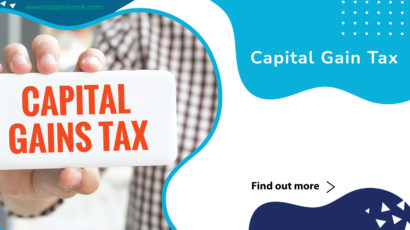If you’re thinking about beginning a new business in 2022, you’ll almost certainly need some cash to get started. Many new businesses fail due to financial problems, so determining how much money you’ll need not only to start but also to keep the business running will be critical to its long-term survival.
It’s essential to be aware of the startup funding choices accessible to you and to weigh them thoroughly before determining how to fund your business.
Where can I get funding for a startup business?
There are many different types of funding available for startups, and we’ll go over the most common ones in this blog.
What is the greatest way to finance a startup?
There is no clear answer to this issue; it will depend on the type of business you’re starting, your location, type of industry, and possibly even where your business is located geographically. The primary funding possibilities for startups that you should explore and consider are listed below.
Funding possibilities for startups
Self-funding a startup
For those who have the personal funds, starting a business with their own money is an easy alternative. Investors are hesitant to provide money to new businesses unless you can present them with a compelling business case.
Self-funding may be an option for you if you plan to run a business with low starting and monthly costs (for example, a consulting business from home).
This option may not be suitable for you if your firm requires significant up-front expenditure, such as in premises, products, or equipment.
Family and friends
Family and friends can also be a useful source of capital for a starting company. It may be a less difficult alternative because they do not require as much convincing as an external investment.
You and your partner can agree on the terms and circumstances of the funding. However, to avoid any arguments or misunderstandings later down the line, it’s essential drafting some form of written legal agreement on the payments and terms of the loan (if it’s a loan) and making sure it’s clear if they have any responsibility or future say in the firm.
As with self-funding, you still need to prepare a business plan that includes financial facts about the company and that you should share with whoever is providing the funds.
You must examine how this will affect future relationships and agree on what information they will require in the future concerning money and the firm in general, so communication is essential.
Grants from the government for start ups
The two most common inquiries we hear are, “Can startups get grants?” and “Can startups get loans?” ‘How can I receive government money for my startup?’ and ‘How do I acquire government funding for my startup?’
The following are the answers to these questions:
Yes, startups can often receive national or local government funding to assist them in the early phases of their firm.
There will be various criteria and application processes for each of these grants. Finding out what grants are currently available in your area on the government’s websites is a wonderful place to start. The primary areas to look for funding for startups are listed below.
England: Business Finance Support Finder.
Scotland: Scottish Funding Opportunities
Wales: Business Grants
Ireland: Enterprise Ireland
Bank loans for start-ups
Your bank could be the first place that comes to mind when you need a loan for your startup. Banks, on the other hand, are generally hesitant to lend money to startups due to high failure risk and the unpredictability of their success.
Often, a bank will need you to invest part of your own money in your business and will charge you higher interest rates. You may also be required to put up collateral or security for the loan, such as home equity.
Crowdfunding for start-ups
Crowdfunding is a method of acquiring capital to fund your firm by asking a large number of individuals for small sums of money. While this may provide you with quick cash, you’ll often need an impressive business idea, a business strategy, and the ability to market your company to potential investors. You’ll need a well-thought-out company and marketing plan.
To acquire crowdfunding for your business, you must first register your company on a crowdfunding platform. There are numerous options, with some of the more well-known being:
- Crowdfunder.
- Seedrs.
- Crowdcube.
- Funding Tree.
- Kickstarter.
Crowdfunding is beneficial not only for startups, but also for obtaining future finance for initiatives or plans.
Start-up accelerators or incubators
These tend to be more focused on technology-based firms. Startup programmes are managed by business incubators, and many of them provide access to facilities, administrative resources, technology, and logistical assistance. Incubators are primarily focused on startups since they provide longer-term flexible timeframes that allow prospective business owners to plan out their ideas and finally present them.
Accelerators typically assist current businesses in speeding up or achieving rapid growth by providing coaching, finance, and networking assistance.
Venture capital (VC)
A Venture Capital firm provides this form of investment; they invest in exchange for stock or a share in the company, so you will be giving up some control.
Venture capital investment is difficult to come by. Venture capital firms not only give funding, but also strategic support, customer relationships and networks, strategic partnerships, staff, and company input and advice.
Venture Capital tends to specialise in specific industries, stages of development, or geographic areas. Because VCs are bombarded with chances, you’ll most likely only get a one-on-one meeting with them through an introduction. The procedure is laborious and time taking..
Start-ups can benefit from angel investment.
An angel investor (also known as a business angel) is a person who contributes money and capital to a company in exchange for some share in the profit. Many angel investors are current or former business owners or executives, and as part of the investment, they may provide access to their knowledge and networks.
The specific amount of return they expect is determined by the investor, the industry, and the future size of the company. In most circumstances, normally an angel investor can expect a 30-40% yearly return on investment over the course of three to ten years. It’s not uncommon for an angel investor to expect a rate of return of ten times their initial investment during the first five to seven years.
Summary of startup grants and funding
When you’re planning to start a new business, one of the most important factors to consider is how you’ll fund it or whether you’ll be able to get startup funds or grants. There are a variety of startup grants and startup funding sources that you may be eligible for.
How TaxAdvisor UK can help
At TaxAdvisor UK , our experts will provide you 30 minutes free consultation and help you in managing all your tax and accounting work. Speak to our expert accountants, tax advisor on (0203) 5381276 or fill an online form today. We can have a consultation session over the phone, virtual or face to face meeting and will provide you with a no obligation fixed quote

















